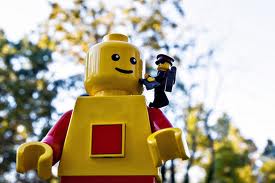I come from a heritage where history and tradition are all important. Indeed, as a Jew, I have often felt as if history has been more important than the present. I don’t often write about Judaism here and I’m not going to write about it now. But this High Holiday season is always a reflective one for me, and this year I find myself thinking quite a lot about history and it’s impact both on me and the world I live in.
When I first started to think seriously about literature — long before I ever thought I’d adopt the creation of it as my career — I learned about the notion of standing on the shoulders of giants. When I read, I thought about how what I was reading might fit into the literary tradition. That train of thought led me to my study of the Classics. But I was never really interested in studying history. History for me meant those times which provided a context for art. How did literature, theatre, music and art evolve given what came before? Who were those giants? How did artists climb up onto their shoulders? And then, eventually, how does one take the great leap off?
Regardless of what my politics have been, as a writer I think I have been rather conservative. My prose is firmly grounded in the here and now. It is far from experimental. If anything, I have had to drag myself kicking and screaming away from the dark-wooded comfiness of the 3rd person omniscient just to find a narrative voice that wasn’t merely an echo of the past. And the poetry? I’ve dabbled some more with form here and there, but honestly, I still keep looking over my shoulder when I write to see who came before and how they did it. I’ve often wondered why this is so and thought that maybe it had to do with a lack of confidence. Maybe I never believed strongly enough in my own abilities to “let ‘er rip,” to throw off those shackles of literary history and just go. I watched a documentary the other night about Jack Kerouac and the Beat Poets, and I listened to the talking heads discuss how ground breaking their work was. Their voices were that of the future, it was said. But that is a future which is, of course, now fifty years in the past. What are the voices of today? And do they even give any nod at all to the voices of yesterday?
Why is this important to me? I think because my work now is as much about teaching and social activism as it is about writing. My writing keeps me in my room. Sometimes the writing brings me outside — for example, next week I’ll be doing a series of readings in Finland (more on that to follow) — but really, it is the teaching that has catapulted me into the world in a way I never was before. I spend now as much time in Asia as I do in America, and the combination of the two adds up to even more time than I now spend in Britain. So what does this have to do with history? Everything, because the more I work outside my office, the more socially active I become, and the more socially aware I become, the more I realise that the world suffers from cowardice and historical amnesia. All the wars, the poverty, the racism have happened before. We can see the consequences of our actions with only a cursory glance behind us. Forgetting our history is probably one of the most dangerous things we can do.
But the other dangerous thing is to stay too firmly rooted in it. Demanding that the traditions of the past are the only way to live chokes our voices and fetters our legs. There’s nothing new about saying we have to learn from the past. We all say it, but we rarely do it. But taking those lessons and moulding the future out of them? Well, that is something fewer of us think about as we hurl ourselves off the giants’ shoulders. But we have to do both. We have to be wise enough to learn, and courageous enough to jump. It’s true in literature. It’s true in politics. It’s true in religion. History is important, but it’s no more important than what comes beyond.
During the Jewish High Holiday season, we talk about asking forgiveness for the sins of our past so that we can be written down in the next year’s book of life. Acknowledge and understand the past, so that we can create a future. Too few of us really do it. The first part is painful; the second part is frightening. But it must be done.
I apologise for this ramble but I needed to write down what I was thinking, and that is what I’ve been thinking about during this holiday season.


Recent Comments